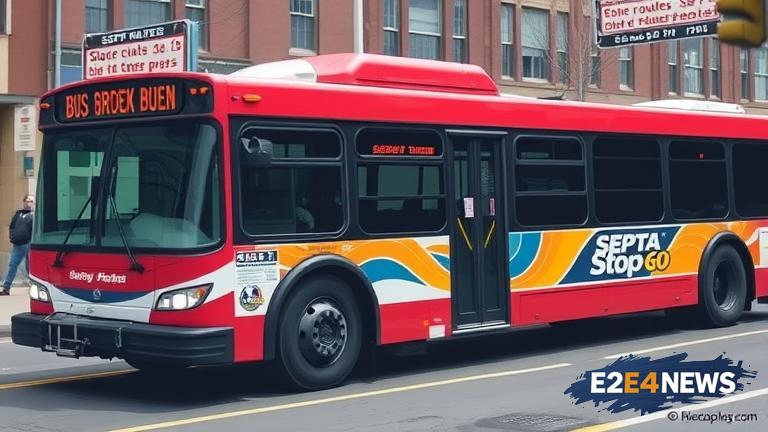The Southeastern Pennsylvania Transportation Authority (SEPTA) has announced a proposal to eliminate 32 bus routes in an effort to streamline its services and reduce costs. The move has been met with widespread criticism from commuters, community leaders, and local politicians, who argue that the cuts will disproportionately affect low-income and minority communities. The proposed cuts are part of a larger effort by SEPTA to reorganize its bus network, which has been facing declining ridership and increasing financial pressures. The authority has been struggling to balance its budget, and the elimination of the 32 bus routes is expected to save an estimated $30 million annually. However, opponents of the plan argue that the cuts will have a devastating impact on the communities that rely on the affected bus routes. Many of the routes that are slated for elimination serve low-income neighborhoods, where residents may not have access to alternative forms of transportation. Community leaders have expressed concerns that the cuts will exacerbate existing social and economic inequalities, making it even more difficult for residents to access employment, education, and healthcare opportunities. The proposal has also sparked concerns among local businesses, which rely on the bus routes to transport employees and customers. Some business owners have argued that the cuts will lead to a decline in economic activity, as customers and employees are forced to seek alternative modes of transportation. In response to the criticism, SEPTA officials have argued that the authority is committed to providing efficient and effective transportation services, and that the proposed cuts are necessary to ensure the long-term sustainability of the system. However, opponents of the plan have called for SEPTA to explore alternative solutions, such as increasing funding or implementing more efficient routing systems. The proposal has sparked a heated debate among local residents, with some arguing that the cuts are necessary to ensure the financial stability of the system, while others argue that the cuts will have a disproportionate impact on vulnerable communities. As the debate continues, SEPTA officials have announced plans to hold a series of public hearings, where residents can provide feedback on the proposed cuts. The hearings are expected to be well-attended, as community leaders and residents voice their concerns and advocate for alternative solutions. In the meantime, SEPTA has announced plans to provide alternative transportation options for residents who will be affected by the cuts, including expanded subway and train services. However, opponents of the plan argue that these alternatives are insufficient, and that the authority should prioritize the needs of its most vulnerable riders. The proposal has also sparked concerns among environmental groups, which argue that the cuts will lead to an increase in air pollution and greenhouse gas emissions, as residents are forced to rely on private vehicles rather than public transportation. As the controversy continues to unfold, SEPTA officials have announced plans to conduct a thorough review of the proposal, taking into account the feedback and concerns of the community. The authority has also announced plans to explore alternative funding sources, including increased state and federal funding, to support the continuation of the affected bus routes. In the end, the fate of the 32 bus routes remains uncertain, as SEPTA officials weigh the competing demands of fiscal responsibility and community needs. The proposal has sparked a wider debate about the role of public transportation in urban planning, and the need for sustainable and equitable transportation systems. As the city of Philadelphia continues to grow and evolve, the importance of a reliable and efficient public transportation system cannot be overstated. The proposed cuts have highlighted the need for increased investment in public transportation, and the importance of prioritizing the needs of vulnerable communities. Ultimately, the decision to eliminate the 32 bus routes will have far-reaching consequences for the city of Philadelphia, and will require careful consideration of the competing demands of fiscal responsibility, community needs, and environmental sustainability.
